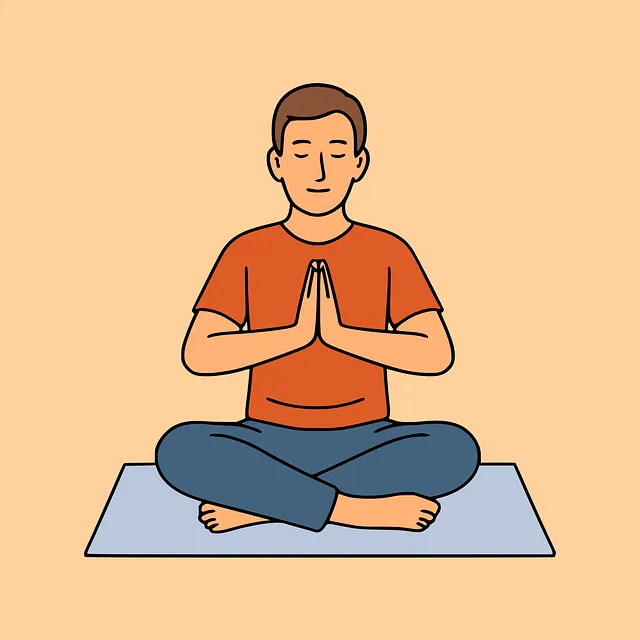Creating a safe, supportive environment at the Kaiser Permanente mental health center in Superior is crucial for effective group facilitation. This involves setting clear guidelines for open dialogue, active listening, and mutual respect, with facilitators modeling empathy to ensure every voice is heard without judgment. Techniques from the Mental Wellness Podcast Series Production enhance participation and emotional healing through narrative sharing. This supportive atmosphere builds trust, normalizes struggles, and empowers individuals to navigate their mental health journeys with enhanced resilience. Facilitators must also establish boundaries for emotional regulation and conduct risk assessments for everyone's safety.
In today’s fast-paced world, mental wellness is paramount. Facilitating supportive group environments at top healthcare providers like Kaiser Permanente Mental Health Center can significantly enhance patient care. This article explores powerful techniques for mental health professionals to lead effective group sessions. From creating safe spaces through ground rules and fostering trust to engaging participants with diverse activities and exercises, we delve into strategies that promote healing and connection. Discover how these methods, tailored for the unique setting of a Kaiser Permanente mental health center, can optimize group dynamics and drive superior outcomes.
- Creating a Safe and Supportive Environment
- – Establishing ground rules and boundaries
- – Fostering trust and open communication
Creating a Safe and Supportive Environment

Creating a Safe and Supportive Environment at the Kaiser Permanente mental health center Superior is paramount to effective group facilitation. This involves establishing guidelines that encourage open dialogue, active listening, and mutual respect among participants. Facilitators should model empathy, ensuring every voice is heard without judgment, fostering an atmosphere where individuals feel comfortable sharing their experiences and perspectives.
Utilizing techniques from the Mental Wellness Podcast Series Production can help create a sense of belonging. By promoting active participation and sharing of personal narratives, facilitators enable emotional healing processes and self-esteem improvement within the group. This supportive environment is crucial for building trust, normalizing shared struggles, and empowering individuals to navigate their mental health journeys with enhanced resilience.
– Establishing ground rules and boundaries

Establishing clear ground rules and boundaries is a cornerstone of effective group facilitation, especially in a mental health setting like the Kaiser Permanente mental health center Superior. This process begins with defining expectations for participation, confidentiality, and respectful communication. By setting these parameters upfront, facilitators create a safe and supportive environment where members feel comfortable sharing their experiences and insights.
Additionally, establishing boundaries around emotional regulation is crucial. Group members should understand that while the session aims to foster confidence boosting and enhance emotional well-being, professional help may be required for more severe or complex mental health concerns. Facilitators should also conduct a risk assessment for mental health professionals to ensure everyone’s emotional safety throughout the group process, aligning with best practices in the field.
– Fostering trust and open communication

Fostering a safe and supportive environment is paramount for effective group facilitation at Kaiser Permanente mental health centers. Building trust among participants is crucial for encouraging open communication, where individuals feel comfortable sharing their experiences and perspectives. This begins with setting clear expectations and boundaries, ensuring confidentiality, and modeling active listening. Facilitators can enhance trust by demonstrating empathy, integrity, and consistency in their interactions. Creating a non-judgmental space enables individuals to connect on a deeper level, fostering genuine connections that support superior mental health outcomes.
Additionally, promoting active participation through interactive activities and group discussions strengthens social skills training. By encouraging members to share insights and offer peer support, facilitators not only enhance communication but also contribute to burnout prevention by cultivating a sense of community. This collective effort fosters inner strength development, empowering individuals to navigate challenges with resilience and a renewed sense of purpose.
Group facilitation techniques, when implemented effectively, can create a safe haven for individuals seeking support at Kaiser Permanente mental health centers. By establishing clear ground rules and fostering an environment of trust and open communication, facilitators enable participants to connect on a deeper level, much like threads weaving together a vibrant tapestry. These strategies, as showcased by the Superior approach, empower individuals to navigate their mental wellness journeys with enhanced confidence and resilience.






